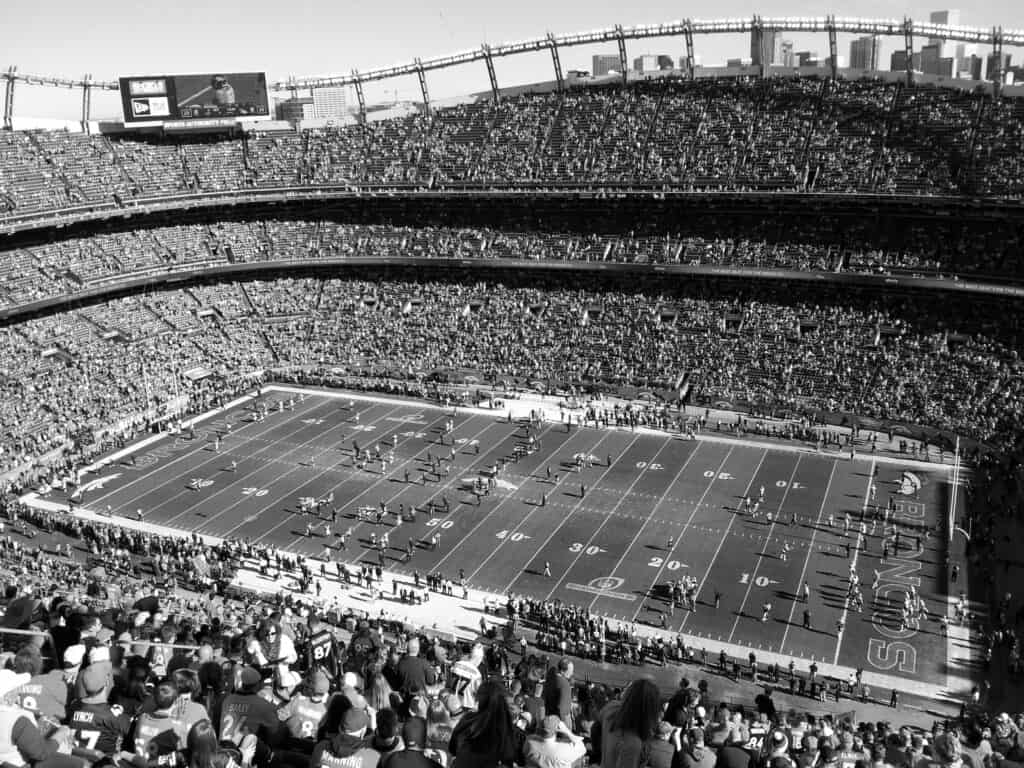That’s the key insight from a recent piece at Smart Cities Dive, which looks at the next wave of stadium development. In D.C., the Council voted 11–2 to give the Commanders $1.15 billion in public funding to bring the team back to the District. That includes 30 years of property tax exemption and a 26-year lease for 24 acres of riverfront land—for $1 per year. Officials project $4.2 billion in new tax revenue from the associated development, but as one economist points out, “the council is basically mortgaging the taxpayers’ future.”
Denver’s pitch sounds cleaner: The Broncos’ ownership group—backed by Walmart family wealth—pledged to privately finance a new stadium and mixed-use district. But even that deal includes state-purchased land and expected city support for public improvements. Officials are now weighing whether to declare the site “blighted,” which would enable tax-increment financing (TIF) through the Denver Urban Renewal Authority. DURA’s director says any TIF district would be limited to public-purpose infrastructure, but the key costs—utilities, streetwork, environmental cleanup—are still coming from the public purse.
This is not a new pattern. The 1990s and early 2000s saw a boom in publicly financed stadiums. When those 30-year leases expire, teams return seeking upgrades or new homes. And while public appetite for direct subsidies has waned, local governments are simply subsidizing stadiums more quietly—using tools like TIFs, tax abatements, and lease terms that would never apply to other private developments.
The result is a subtle shift in risk from franchise owners to the public. Today’s deals avoid upfront tax hikes, but they can still divert city resources, reduce long-term revenue, and constrain future development choices. The land gifted to the Commanders, for example, could support housing, mixed-use projects, or commercial space without the strings attached to a stadium project.
As economists Victor Matheson and Geoffrey Propheter note, stadiums have minimal economic impact for most cities. Oakland lost all three of its major pro sports teams in recent years; Propheter’s early research shows the budget effect was in the low millions—what he calls “less than a rounding error” for a $2 billion city budget.
Cities should be wary of deals where the cost comes not in cash, but in opportunity.
